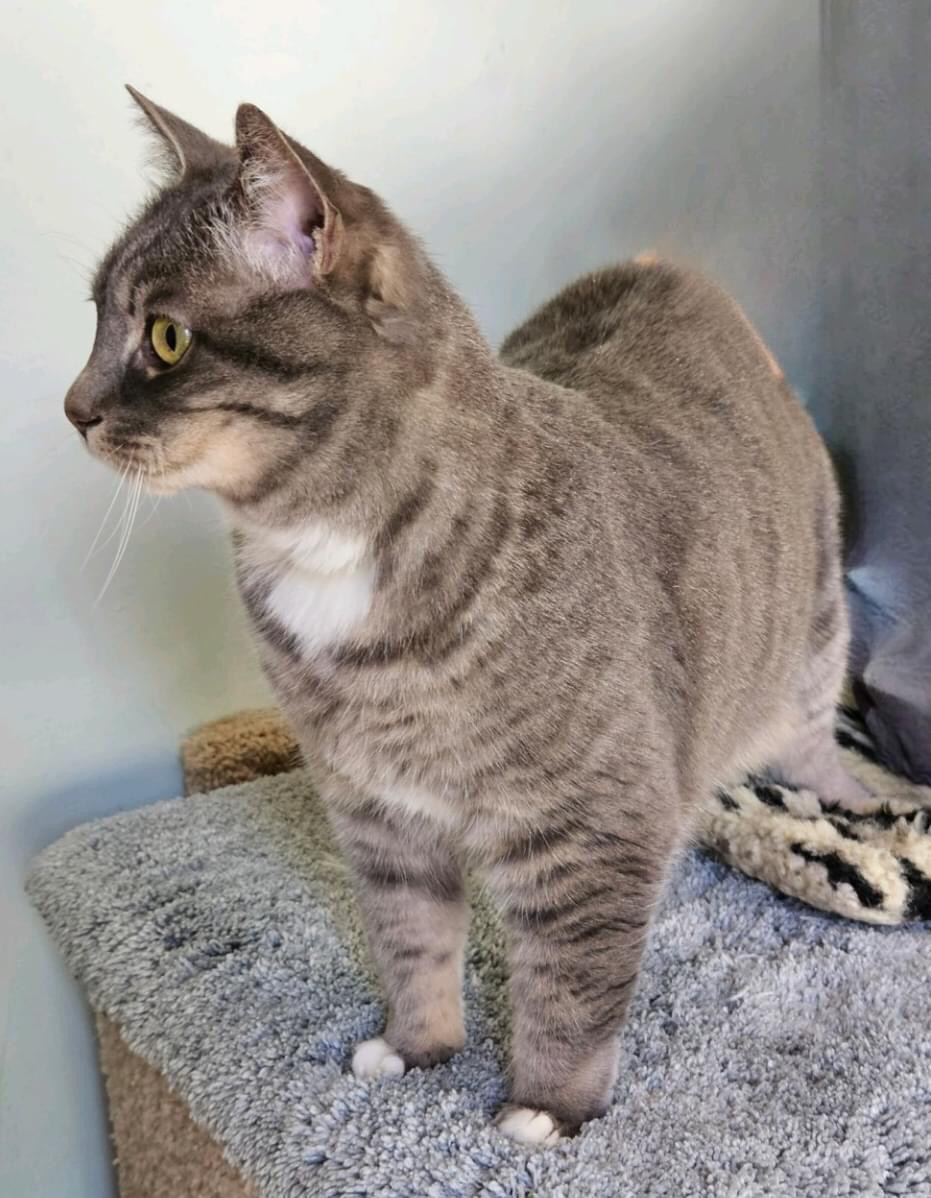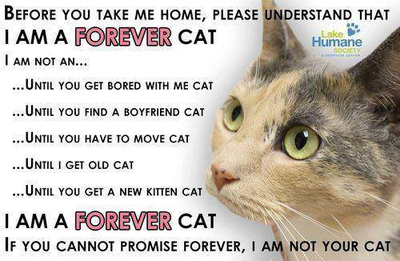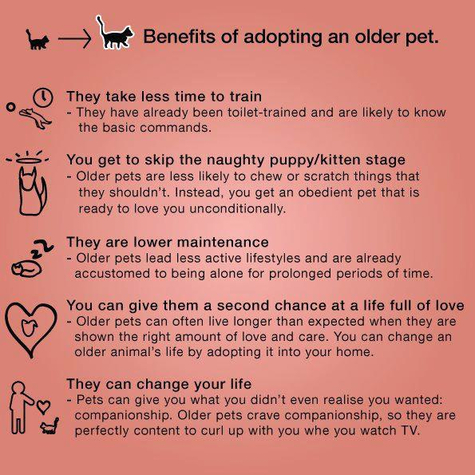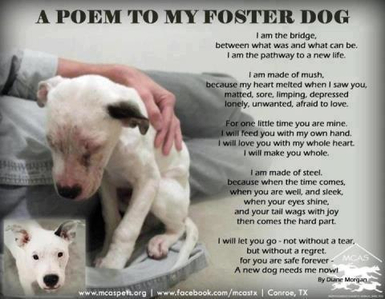ADOPTABLE PETS
DOGS & CATS
ADOPTABLE DOGS
DOG ADOPTION APPLICATION
| dog_app_1.pdf | |
| File Size: | 212 kb |
| File Type: | |
You can get more information about our available
Rescue Dogs & Cats at the link below:
CATS FOR ADOPTION:
Adorable kittens are waiting for you! Call or stop by on the weekends. We will be happy to set up a meet-n-greet time during the week if you'd like. 951-659-1122
Meet Sabrina, a very affectionate, friendly, loving girl who is looking for a home to call her own. Please call ARF for info! 951-659-1122
Smokey is a very, very friendly girl of about 4 years of age. Smokey would absolutely love a guardian who will be conscious of her healthy diet and who will welcome her purrs, snuggles, and love.
CAT ADOPTION APPLICATION
| cat_app_1.pdf | |
| File Size: | 233 kb |
| File Type: | |
Five Common Misconceptions About Pet Adoption
Myth #1: I don’t know what I’m getting. There may in fact be more information available about an adoptable pet than one from a breeder or pet store.
Many of the pets posted on Petfinder are in foster care. Foster parents live with their charges 24-7 and can often tell you, in detail, about the pet’s personality and habits. If the pet is at a shelter, the staff or volunteers may be able to tell you what he or she is like.
At the very least, you can ask the staff if the pet was an ownersurrender (rather than a stray) and, if so, what the former owner said about him or her. Quite often pets are given up because the owner faced financial or housing issues (more on that later). You can also ask about the health and behavioral evaluations the pet has undergone since arriving at the shelter. In contrast, pet store owners rarely have an idea of what a pet will be like in a home.
Myth #2: I can’t find what I want at a shelter
If you can’t find the pet you’re looking for on Petfinder, don’t give up. Some shelters maintain waiting lists for specific breeds, so don’t be afraid to ask! There are also breed-specific rescues for just about every breed, and most of them post their pets on Petfinder
Myth #3: I can get a free pet, so why pay an adoption fee?
According to the National Council on Pet Population Study and Policy (via the ASPCA), approximately 65% of pet parents in the U.S. get their pets for free or at low cost, and most pets are obtained from acquaintances or family members. The NCPPSP also reports that pets acquired from friends make up more than 30% of pets surrendered to shelters (read the article here).
While getting a “free” pet may seem like a bargain at first, you’re then responsible for veterinary costs that shelters and rescue groups usually cover, including:
Spaying/neutering $150-300
Distemper vaccination $20-30 x2
Rabies vaccination $15-25
Heartworm test $15-35
Flea/tick treatment $50-200
Microchip $50
Myth #4: Pets are in shelters because they didn’t make good pets
In fact, the main reasons pets are given up include:
Owners are moving to housing that don’t allow pets (7% dogs, 8% cats)
Allergies (8% cats)
Owner having personal problems (4% dogs and cats)
Too many or no room for litter mates (7% dogs, 17% cats)
Owner can no longer afford the pet (5% dogs, 6% cats)
Owner no longer has time for the pet (4% dogs)
As you can see, many of the reasons have nothing to do with the pets themselves. Working with shelter staff and volunteers can be a great way to figure out the best match for you and your home.
Myth #5: Shelter pets have too much baggage
Rescued pets have full histories … something that can actually be GREAT for adopters. Remember, all pets– even eight-week old puppies and kittens — have distinct personalities. Those personalities will either jive with your home and lifestyle or not. Work with rescue group or shelter staff to find the right fit for you.
Myth #1: I don’t know what I’m getting. There may in fact be more information available about an adoptable pet than one from a breeder or pet store.
Many of the pets posted on Petfinder are in foster care. Foster parents live with their charges 24-7 and can often tell you, in detail, about the pet’s personality and habits. If the pet is at a shelter, the staff or volunteers may be able to tell you what he or she is like.
At the very least, you can ask the staff if the pet was an ownersurrender (rather than a stray) and, if so, what the former owner said about him or her. Quite often pets are given up because the owner faced financial or housing issues (more on that later). You can also ask about the health and behavioral evaluations the pet has undergone since arriving at the shelter. In contrast, pet store owners rarely have an idea of what a pet will be like in a home.
Myth #2: I can’t find what I want at a shelter
If you can’t find the pet you’re looking for on Petfinder, don’t give up. Some shelters maintain waiting lists for specific breeds, so don’t be afraid to ask! There are also breed-specific rescues for just about every breed, and most of them post their pets on Petfinder
Myth #3: I can get a free pet, so why pay an adoption fee?
According to the National Council on Pet Population Study and Policy (via the ASPCA), approximately 65% of pet parents in the U.S. get their pets for free or at low cost, and most pets are obtained from acquaintances or family members. The NCPPSP also reports that pets acquired from friends make up more than 30% of pets surrendered to shelters (read the article here).
While getting a “free” pet may seem like a bargain at first, you’re then responsible for veterinary costs that shelters and rescue groups usually cover, including:
Spaying/neutering $150-300
Distemper vaccination $20-30 x2
Rabies vaccination $15-25
Heartworm test $15-35
Flea/tick treatment $50-200
Microchip $50
Myth #4: Pets are in shelters because they didn’t make good pets
In fact, the main reasons pets are given up include:
Owners are moving to housing that don’t allow pets (7% dogs, 8% cats)
Allergies (8% cats)
Owner having personal problems (4% dogs and cats)
Too many or no room for litter mates (7% dogs, 17% cats)
Owner can no longer afford the pet (5% dogs, 6% cats)
Owner no longer has time for the pet (4% dogs)
As you can see, many of the reasons have nothing to do with the pets themselves. Working with shelter staff and volunteers can be a great way to figure out the best match for you and your home.
Myth #5: Shelter pets have too much baggage
Rescued pets have full histories … something that can actually be GREAT for adopters. Remember, all pets– even eight-week old puppies and kittens — have distinct personalities. Those personalities will either jive with your home and lifestyle or not. Work with rescue group or shelter staff to find the right fit for you.










